Contributions from biomedical research
Publications related to COVID-19
Currently, many research groups of the DRFZ are involved in research on Covid-19. The latest publications are listed here.
The SARS-CoV-2 virus inhibits the immune response by inducing the cytokine TGFβ in COVID-19 patients with severe disease
Researchers at the DRFZ and the Charité – University Medicine Berlin have investigated the reasons why some patients suffer from a severe COVID-19 disease course. The result is surprising: the Corona virus induces the expression of the cytokine TGFβ in these patients, which inhibits their immune system. Usually, TGFβ is only produced at the end of an immune reaction in order to terminate it. However, in COVID-19 patients with severe disease, TGFβ is produced from the beginning of the immune response. This inactivates the Natural Killer (NK) cells that would normally recognize and kill virus-infected cells, thereby inhibiting the replication of the virus. This research has now been published in the journal NATURE (Witkowski et al.). The same researchers have previously shown that the cells producing antibodies are also affected by the cytokine TGFβ, resulting in a chronic immune reaction, that is no longer directed against the virus (Ferreira-Gomez, Nature Communications 2021). TGFβ is also likely to be involved in the formation of thromboses and fibroses. These results open up a new opportunity to detect severe cases of COVID-19 from the outset, through monitoring of early TGFβ production, and then possibly also to mitigate such severe disease, through therapeutic inhibition of this cytokine.
Untimely TGFβ 1 responses in severe COVID-19 limit antiviral function of NK cells
M. Witkowski, C.Tizian, M. Ferreira-Gomes, D. Niemeyer, T. C. Jones, F. Heinrich, S. Frischbutter, S. Angermair, T. Hohnstein, I. Mattiola, P. Nawrath, S. Mc Ewen, S. Zocche, E. Viviano, G. A. Heinz, M. Maurer, U. Kölsch, R. L. Chua, T. Aschman, C. Meisel, J. Radke15, B. Sawitzki, J. Roehmel, K. Allers, V.Moos, T.Schneider, L. Hanitsch, M. A. Mall, C. Conrad, H. Radbruch, C.U. Duerr, J. A. Trapan, E. Marcenaro, T. Kallinich, V. M. Corman, F. Kurth, L. E. Sander, C. Drosten, S. Treskatsch, P.Durek, A. Kruglov, A. Radbruch, M.F. Mashreghi*, and Andreas Diefenbach* (contributed equaly); Nature, in press 2021, doi: 10.1038/s41586-021-04142-6
Clues that natural killer cells help to control COVID
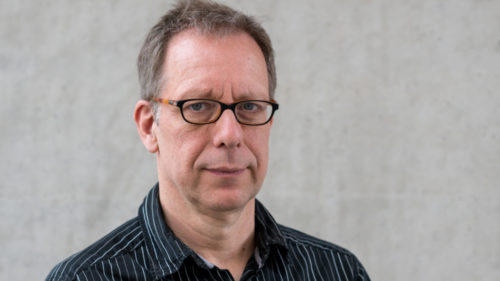
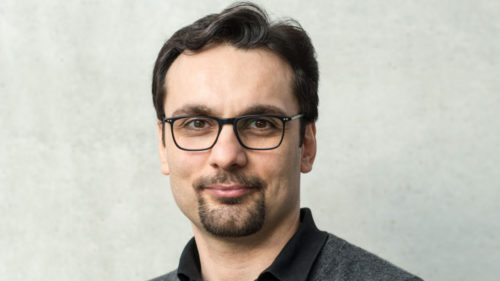
In severe COVID-19, SARS-CoV-2 induces a chronic, TGF-β-dominated adaptive (auto)immune response
In this report, scientists of the DRFZ and of the Charité have shown that in severely affected COVID-19 patients, SARS-CoV- 2 triggers a chronic immune reaction, lasting over months, but not protecting them from SARS-CoV-2, and in the end not even directed against the virus. Detailed inspection of the activated immune cells, in particular of the B lymphocytes, revealed that those chronic immune reactions are controlled by the cytokine TGFß. This is the first description of TGFß as an essential player in severe COVID-19. Therapeutic targeting of TGF-β may be a new and efficient way to ameliorate or even prevent severe COVID-19.

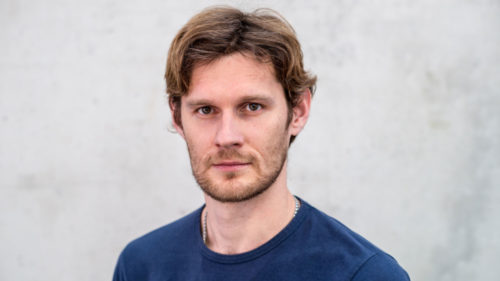
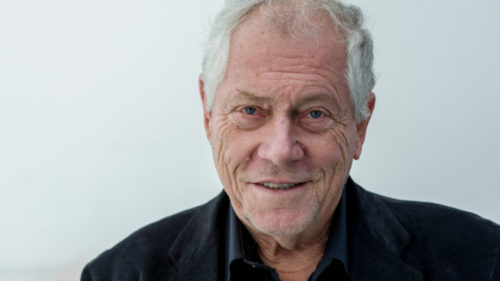
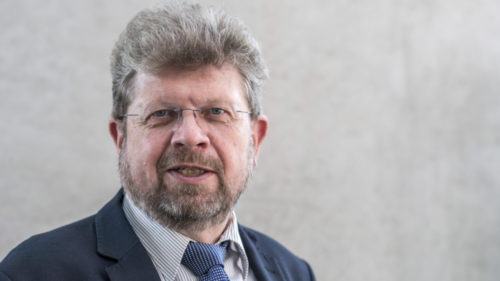
Ferreira-Gomes, M., Kruglov, A., Durek, P., Heinrich, F., Tizian, C., Heinz, G. A., Pascual-Reguant, A., Du, W., Mothes, R., Fan, C., Frischbutter, S., Habenicht, K., Budzinski, L., Ninnemann, J., Jani, P. K., Guerra, G., Lehmann, K., Matz, M., Ostendorf, L., Heiberger, L., Chang, H.-D., Bauherr, S., Maurer, M., Schoenrich, G., Raftery, M., Kallinich, T., Mall, M. A., Angermair, S., Treskatsch, S., Doerner, T., Corman, V. M., Diefenbach, A., Volk, H.-D., Elezkurtaj, S., Winkler, T. H., Dong, J., Hauser, A. E., Radbruch, H., Witkowski, M., Melchers, F., Radbruch, A., Mashreghi, M.-F. Nat Commun 12, 1961 (2021). https://doi.org/10.1038/s41467-021-22210-3
Three vaccinations against SARS-CoV-2 are absolutely required in RA patients to elicit antiviral antibody response in the oral cavity
Preexisting autoimmune diseases, such as rheumatoid arthritis, and biological treatments, like B cell depletion, are known to exhibit higher risk of severe COVID-19 manifestation and increased frequency of breakthrough infections after vaccination. Systemic serum antibodies after vaccination restrict virus dissemination after infection of the host, while virus-specific antibodies at the mucosal surfaces, i.e. oral cavity, are required to prevent initial infection of the host. The recent study published by Drs. Ana-Luisa Stefanski and Dr. Andrey Kruglov in Journal of Autoimmunity addressed the kinetic of anti-SARS-COV-2 antibody responses in oral cavity in RA patients. They found that anti-Spike SARS-COV-2 IgG responses after second vaccination were severely diminished in the oral cavity of RA patients regardless of B cell depleting therapy. Importantly, both salivary and serologic anti-Spike IgG and IgA responses towards WT and omicron Spike variants were efficiently induced by third vaccination in RA patients to the levels that were similar to healthy individuals. Altogether, these data advocate for the necessity of three-dose vaccination for RA patients to mount anti-Spike antibody responses at the mucosal surfaces.

Distinct microbiota can induce antibodies to SARS-CoV-2
The research group of Andrey Kruglov has now published evidence that distinct bacteria of the oral and gut microbiome can stimulate the immune system to make protective antibodies against the receptor-binding domain of the spike protein of SARS-CoV-2. The bacteria make proteins imitating this antigen. Individuals with these bacteria in their microbiome already have protective antibodies if they get infected with SARS-CoV-2. Presumably they will be less likely to get severe COVID-19. One of these bacteria is already in use as probiotic: Streptococcus salivarius.


Kidney transplant patients have poor responses to COVID-19 vaccines
COVID-19 vaccinations have shown remarkable protection against SARS-CoV-2 infection in patients around the world. However, recent evidence has suggested that immune compromised and organ transplant patients have poor immune responses to COVID-19 vaccines. Hector Rincon-Arevalo, Eva Schrezenmeier, Thomas Dörner and colleagues looked at antibody, plasmablast, and memory B cell responses in healthy, dialysis, and kidney transplant patients before and after the COVID-19 mRNA BNT162b2 vaccine. They found that patients had poor antibody and B cell responses to the vaccine, suggesting these patients may not be sufficiently protected against SARS-CoV-2 infection. Thus, different vaccine strategies need to be developed to sufficiently protect dialysis and kidney transplant patients against COVID-19.
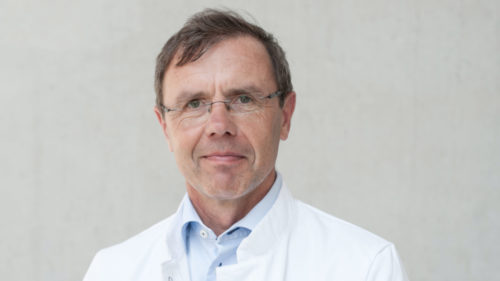


H Rincon-Arevalo, M Choi, A-L Stefanski, F Halleck, U Weber, F Szelinski, B Jahrsdörfer, H Schrezenmeier, C Ludwig, A Sattler, K Kotsch, A Potekhin, Y Chen, G . Burmester, K-U Eckardt, G M Guerra, P Durek, F Heinrich, M Ferreira-Gomes, A Radbruch, K Budde, A C. Lino, M-F Mashreghi, Eva Schrezenmeier, Thomas Dörner. Impaired humoral immunity to SARS-CoV-2 BNT162b2 vaccine in kidney transplant recipients and dialysis patients. Science Immunology 15 Jun 2021, Vol. 6, Issue 60, eabj1031, DOI: 10.1126/sciimmunol.abj1031
Publications in collaborations with other institutes
Tacrolimus-resistant SARS-CoV-2-specific T-cell products to prevent and treat severe COVID-19 in immunosuppressed patients
Peter L, Wendering DJ, Schlickeiser S, Hoffmann H, Noster R, Wagner DL, Zarrinrad G, Münch S, Picht S, Schulenberg S, Moradian H, Mashreghi MF, Klein O, Gossen M, Roch T, Babel N, Reinke P, Volk HD, Amini L, Schmueck-Henneresse M. Tacrolimus-resistant SARS-CoV-2-specific T-cell products to prevent and treat severe COVID-19 in immunosuppressed patients. Mol Ther Methods Clin Dev. 2022 Feb 26. doi: 10.1016/j.omtm.2022.02.012. Epub ahead of print. PMCID: PMC8882037.
SARS-CoV-2 Nsp13 encodes for an HLA-E-stabilizing peptide that abrogates inhibition of NKG2A-expressing NK cells
Hammer, Q., Dunst, J., Christ, W., Picarazzi, F., Wendorff, M., Momayyezi,
P., Huhn, O., Netskar, H.K., Maleki, K.T., García, M., Sekine, T., Sohlberg, E., Azzimato, V., Aouadi, M., Karolinska COVID-19 Study Group, Severe COVID-19 GWAS group, Degenhardt, F., Franke, A.,
Spallotta, F., Mori, M., Michaëlsson, J., Björkström, N.K., Rückert, T., Romagnani, C., Horowitz, A., Klingström, J., Ljunggren, H.-G., Malmberg, K.-J., SARS-CoV-2 Nsp13 encodes for an HLA-E-stabilizing peptide that abrogates inhibition of NKG2A-expressing NK cells, Cell Reports (2022), doi: https://doi.org/10.1016/j.celrep.2022.110503.
Dynamics of humoral and T-cell immunity after three BNT162b2 vaccinations in adults older than 80 years
Romero-Olmedo AJ, Schulz AR, Hochstätter S, Gupta DD, Hirseland H, Staudenraus D, Camara B, Volland K, Hefter V, Sapre S, Krähling V, Müller-Kräuter H, Chung HR, Mei HE, Keller C, Lohoff M. Dynamics of humoral and T-cell immunity after three BNT162b2 vaccinations in adults older than 80 years. Lancet Infect Dis. 2022 May;22(5):588-589. doi: 10.1016/S1473-3099(22)00219-5. Epub 2022 Apr 6. PMID: 35397209; PMCID: PMC8986166.
Press release University-Marburg (German only)
Induction of robust cellular and humoral immunity against SARS-CoV-2 after a third dose of BNT162b2 vaccine in previously unresponsive older adults.
Induction of robust cellular and humoral immunity against SARS-CoV-2 after a third dose of BNT162b2 vaccine in previously unresponsive older adults.
Romero-Olmedo AJ, Schulz AR, Hochstätter S, Das Gupta D, Virta I, Hirseland H, Staudenraus D, Camara B, Münch C, Hefter V, Sapre S, Krähling V, Müller-Kräuter H, Widera M, Mei HE, Keller C, Lohoff M. Induction of robust cellular and humoral immunity against SARS-CoV-2 after a third dose of BNT162b2 vaccine in previously unresponsive older adults. Nat Microbiol. 2022 Jan 10. doi: 10.1038/s41564-021-01046-z. PMID: 35013593.
Pressemitteilung der Universität Marburg (IDW -Deutsch)
Complement activation induces excessive T cell cytotoxicity in severe COVID-19
Complement activation induces excessive T cell cytotoxicity in severe COVID-19
Georg P, Astaburuaga-García R, Bonaguro L, Brumhard S, Michalick L, Lippert LJ, Kostevc T, Gäbel C, Schneider M, Streitz M, Demichev V, Gemünd I, Barone M, Tober-Lau P, Helbig ET, Hillus D, Petrov L, Stein J, Dey HP, Paclik D, Iwert C, Mülleder M, Aulakh SK, Djudjaj S, Bülow RD, Mei HE, Schulz AR, Thiel A, Hippenstiel S, Saliba AE, Eils R, Lehmann I, Mall MA, Stricker S, Röhmel J, Corman VM, Beule D, Wyler E, Landthaler M, Obermayer B, von Stillfried S, Boor P, Demir M, Wesselmann H, Suttorp N, Uhrig A, Müller-Redetzky H, Nattermann J, Kuebler WM, Meisel C, Ralser M, Schultze JL, Aschenbrenner AC, Thibeault C, Kurth F, Sander LE, Blüthgen N, Sawitzki B; PA-COVID-19 Study Group. Complement activation induces excessive T cell cytotoxicity in severe COVID-19. Cell. 2021 Dec 28:S0092-8674(21)01562-2. doi: 10.1016/j.cell.2021.12.040. Epub ahead of print. PMID: 35032429; PMCID: PMC8712270.
Pressemitteilung vom BIH (Deutsch)
Severe COVID-19 Is Marked by a Dysregulated Myeloid Cell Compartment
Severe COVID-19 Is Marked by a Dysregulated Myeloid Cell Compartment
Schulte-Schrepping J, Reusch N, Paclik D, Baßler K, Schlickeiser S, Zhang B, Krämer B, Krammer T, Brumhard S, Bonaguro L, De Domenico E, Wendisch D, Grasshoff M, Kapellos TS, Beckstette M, Pecht T, Saglam A, Dietrich O, Mei HE, Schulz AR, Conrad C, Kunkel D, Vafadarnejad E, Xu CJ, Horne A, Herbert M, Drews A, Thibeault C, Pfeiffer M, Hippenstiel S, Hocke A, Müller-Redetzky H, Heim KM, Machleidt F, Uhrig A, Bosquillon de Jarcy L, Jürgens L, Stegemann M, Glösenkamp CR, Volk HD, Goffinet C, Landthaler M, Wyler E, Georg P, Schneider M, Dang-Heine C, Neuwinger N, Kappert K, Tauber R, Corman V, Raabe J, Kaiser KM, Vinh MT, Rieke G, Meisel C, Ulas T, Becker M, Geffers R, Witzenrath M, Drosten C, Suttorp N, von Kalle C, Kurth F, Händler K, Schultze JL, Aschenbrenner AC, Li Y, Nattermann J, Sawitzki B, Saliba AE, Sander LE; Deutsche COVID-19 OMICS Initiative (DeCOI). Severe COVID-19 Is Marked by a Dysregulated Myeloid Cell Compartment. Cell. 2020 Aug 5:S0092-8674(20)30992-2. doi: 10.1016/j.cell.2020.08.001.
Pressemeldung der Charité in Englisch
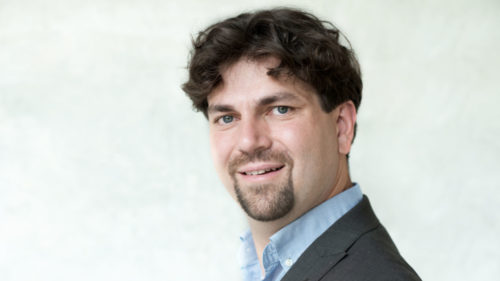
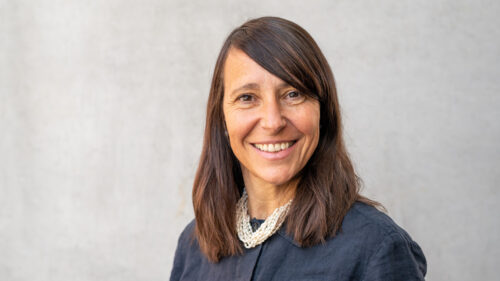


 Deutsch
Deutsch